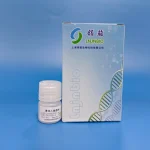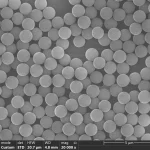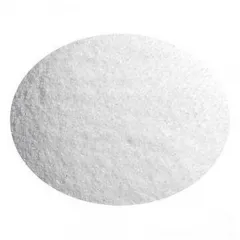Relative Evaluation of the Application of Polystyrene Microspheres and Polystyrene Carboxyl Microspheres in Biotechnology – Concentrating On Nucleic Acid Extraction.
(LNJNbio Polystyrene Microspheres)
In the field of modern-day biotechnology, microsphere products are widely made use of in the removal and purification of DNA and RNA because of their high details area, great chemical security and functionalized surface residential or commercial properties. Among them, polystyrene (PS) microspheres and their obtained polystyrene carboxyl (CPS) microspheres are one of the two most widely studied and applied products. This article is given with technological support and data evaluation by Shanghai Lingjun Biotechnology Co., Ltd., aiming to systematically contrast the efficiency distinctions of these 2 sorts of materials in the procedure of nucleic acid extraction, covering key signs such as their physicochemical residential properties, surface alteration capability, binding performance and healing rate, and show their appropriate scenarios via speculative information.
Polystyrene microspheres are uniform polymer fragments polymerized from styrene monomers with great thermal stability and mechanical toughness. Its surface is a non-polar framework and typically does not have energetic useful teams. Consequently, when it is straight made use of for nucleic acid binding, it needs to count on electrostatic adsorption or hydrophobic action for molecular addiction. Polystyrene carboxyl microspheres introduce carboxyl practical groups (– COOH) on the basis of PS microspheres, making their surface area with the ability of additional chemical combining. These carboxyl teams can be covalently bonded to nucleic acid probes, proteins or various other ligands with amino teams with activation systems such as EDC/NHS, thus achieving extra secure molecular addiction. Therefore, from a structural perspective, CPS microspheres have a lot more benefits in functionalization possibility.
Nucleic acid removal typically includes actions such as cell lysis, nucleic acid launch, nucleic acid binding to strong phase carriers, cleaning to eliminate contaminations and eluting target nucleic acids. In this system, microspheres play a core role as solid stage providers. PS microspheres generally count on electrostatic adsorption and hydrogen bonding to bind nucleic acids, and their binding efficiency has to do with 60 ~ 70%, but the elution performance is reduced, only 40 ~ 50%. In contrast, CPS microspheres can not just use electrostatic effects however additionally achieve even more solid fixation with covalent bonding, decreasing the loss of nucleic acids during the cleaning procedure. Its binding performance can get to 85 ~ 95%, and the elution performance is likewise enhanced to 70 ~ 80%. In addition, CPS microspheres are also significantly better than PS microspheres in regards to anti-interference capability and reusability.
In order to confirm the performance differences between both microspheres in actual procedure, Shanghai Lingjun Biotechnology Co., Ltd. performed RNA extraction experiments. The speculative samples were derived from HEK293 cells. After pretreatment with standard Tris-HCl buffer and proteinase K, 5 mg/mL PS and CPS microspheres were made use of for removal. The results showed that the ordinary RNA return removed by PS microspheres was 85 ng/ μL, the A260/A280 ratio was 1.82, and the RIN worth was 7.2, while the RNA return of CPS microspheres was raised to 132 ng/ μL, the A260/A280 proportion was close to the excellent value of 1.91, and the RIN value got to 8.1. Although the operation time of CPS microspheres is a little longer (28 minutes vs. 25 minutes) and the price is higher (28 yuan vs. 18 yuan/time), its extraction high quality is substantially improved, and it is preferable for high-sensitivity detection, such as qPCR and RNA-seq.
( SEM of LNJNbio Polystyrene Microspheres)
From the viewpoint of application circumstances, PS microspheres are suitable for large-scale screening projects and initial enrichment with reduced requirements for binding uniqueness because of their affordable and easy operation. Nevertheless, their nucleic acid binding capacity is weak and easily influenced by salt ion concentration, making them inappropriate for long-lasting storage or repeated use. On the other hand, CPS microspheres appropriate for trace example removal because of their abundant surface functional groups, which assist in further functionalization and can be utilized to construct magnetic bead detection sets and automated nucleic acid extraction systems. Although its preparation procedure is fairly complex and the price is relatively high, it shows stronger versatility in scientific research and medical applications with rigorous demands on nucleic acid removal effectiveness and pureness.
With the fast development of molecular medical diagnosis, genetics modifying, liquid biopsy and various other areas, greater demands are placed on the effectiveness, purity and automation of nucleic acid removal. Polystyrene carboxyl microspheres are gradually changing conventional PS microspheres due to their superb binding efficiency and functionalizable features, becoming the core selection of a brand-new generation of nucleic acid removal products. Shanghai Lingjun Biotechnology Co., Ltd. is additionally constantly maximizing the bit dimension circulation, surface density and functionalization effectiveness of CPS microspheres and creating matching magnetic composite microsphere items to meet the needs of scientific medical diagnosis, scientific research institutions and industrial clients for top notch nucleic acid removal options.
Distributor
Our products are widely used in many fields, such as medical testing, genetic testing, university research, genetic breeding and more. We not only provide products but can also undertake OEM, ODM, and other needs. If you need dna extraction, please feel free to contact us at sales01@lingjunbio.com.
All articles and pictures are from the Internet. If there are any copyright issues, please contact us in time to delete.
Inquiry us





